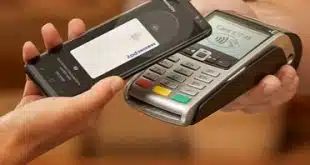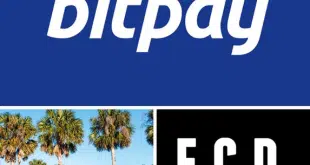n
Bowing to an outcry of opposition, telecommunications giant Verizon Wireless cancelled a controversial $2 fee for one-time telephone and online payments just one day after announcing it. The carrier’s reversal came less than two months after Bank of America Corp. cancelled its enormously unpopular plan to charge some customers $5 per month for using their debit cards for purchases.
n
Verizon Wireless, the nation’s largest provider of mobile-phone service, announced the reversal in a Twitter message and a statement posted on its Web site late Friday afternoon. “The company made the decision in response to customer feedback about the plan, which was designed to improve the efficiency of those transactions,” the statement says.
n
The statement includes a quote from Dan Mead, president and chief executive officer of Basking Ridge, N.J.-based Verizon Wireless. “At Verizon, we take great care to listen to our customers. Based on their input, we believe the best path forward is to encourage customers to take advantage of the best and most efficient options, eliminating the need to institute the fee at this time,” Mead said.
n
Plans for the fee that would have been assessed on one-time credit and debit card payments spawned a flurry of press coverage on Friday morning, a slow day for business news ahead of the New Year’s holiday weekend. A New York Times headline referred to “an uproar on the Web” among aggrieved customers. An online petition against the fee on Change.org gathered more than 100,000 signatures, according to news reports. The fee even attracted the attention of the Federal Communications Commission, regulator of the telephone industry. An FCC official told the Reuters news service that the agency is “concerned about Verizon’s actions” and “looking into the matter.”
n
All of this for what Verizon Wireless dubbed a “convenience” fee that was supposed to take effect Jan. 15 and apply only to a relatively few customers, mainly those subscribers who make last-minute, or expedited, payments. “The reality is everybody is kind of up in arms about this, but it doesn’t hit anywhere near the majority of consumers,” notes Aite Group LLC senior analyst Ron Shevlin, who has studied the bill-payment market.
n
According to recent Aite research, an estimated 21% of cell-phone bills are paid via debit card and 14% by credit card. Those numbers include recurring and one-time payments, according to Shevlin.
n
In its statement announcing the fee Thursday, Verizon Wireless listed a bevy of payment forms that would remain free, including mailed paper checks and money orders, automatic bill payments backed by payment cards or demand-deposit accounts through the automated clearing house, ACH transactions online or by phone, online-banking bill-pay services, in-person payments at Verizon Wireless stores and kiosks, and payments with Verizon Wireless gift or rebate cards.
n
Two spokespersons for Verizon Wireless contacted by Digital Transactions News for comment did not reply by mid-Friday afternoon.
n
Verizon Wireless, with 90.7 million retail customers, is far from the only company to try to charge so-called convenience fees for non-face-to-face card transactions. And, given its own stated exemptions, not many customers would have paid the $2 charge. So why all the controversy?
n
Aite Group’s Shevlin notes that as 2011 closes, consumers and the press are especially sensitive to fees in the wake of banks’ efforts to recoup debit card interchange revenues lost to Durbin Amendment price controls that took effect Oct. 1 by imposing new charges on checking accounts or debit cards. The phenomenon was best exemplified by BofA’s failed attempt to impose a $5 monthly debit card usage fee on some customers, but several other banks either rescinded or tested but did not proceed with similar fees.
n
Shevlin also faulted Verizon Wireless’s explanation for the fee. The Thursday statement did not explicitly give a reason for the charge but raised the issue of processing costs. “The fee will help allow us to continue to support these single bill-payment options in these channels and is designed to address costs incurred by us for only those customers who choose to make single bill payments in alternate payment channels (online, mobile, telephone),” the statement said.
n
If anything, Verizon Wireless’s payment-processing expenses should be going down because the Durbin Amendment has cut interchange on transactions involving large issuers’ debit cards by more than 40%, Shevlin notes. “There is no way that the incremental cost that they’re incurring is anywhere near $2 per transaction,” he says. “This is mostly a case of another organization … using a really flimsy argument of increased cost.”
n
Some observers speculated that Verizon Wireless was trying to steer customers into recurring payments that more reliably generate revenues than one-time payments. In any case, Shevlin sees the attempts by banks and Verizon Wireless to raise fees as more evidence that the financial side of large corporations, concerned only with increasing revenue and cutting costs, is gaining leverage over their marketing departments in setting consumer prices.
n
“That’s coming back to bite these people,” he says. “If you’re going to raise prices, it has to be done in the context of adding to the value of the customer proposition.”
n
n
n




